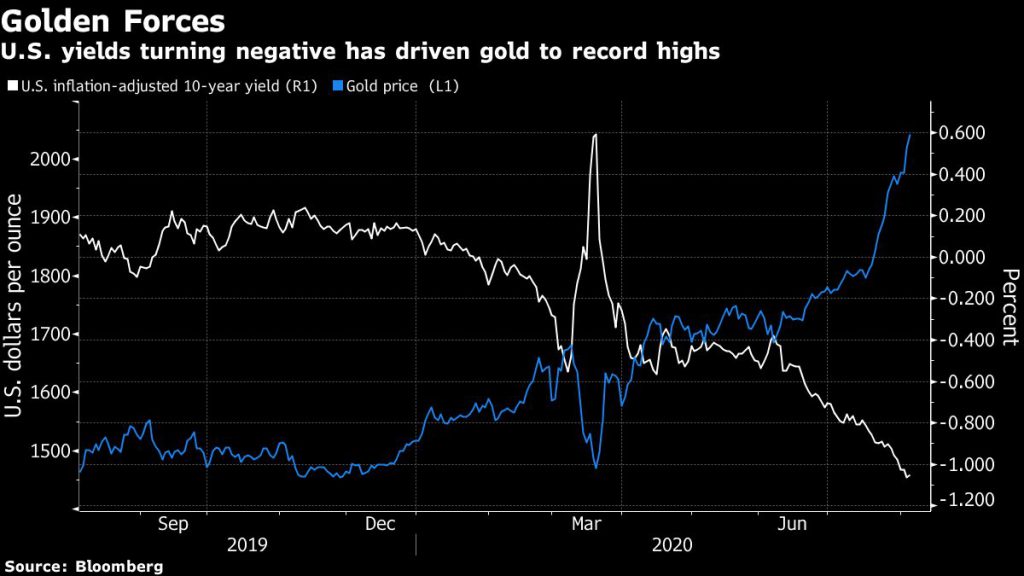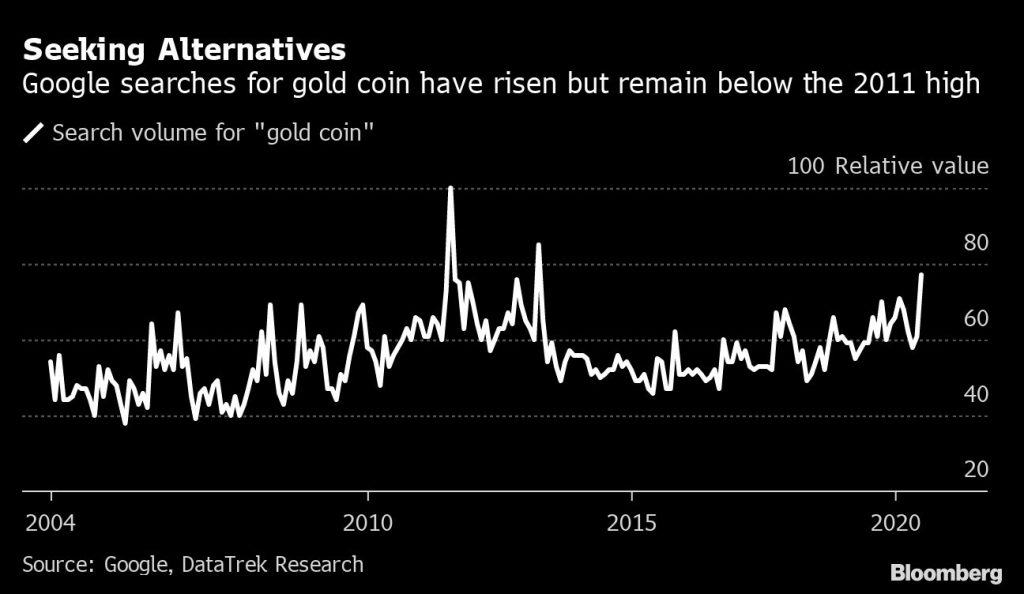Bulls bet that bond market’s trillions are coming for gold

For unabashed gold bulls, there are trillions of dollars in the bond market just ready to snap the metal up in a world short on hedges but big on risk.
Spurred on by real yields at record lows and monetary dangers ahead, asset allocators are primed to start ditching some of their government debt holdings, the theory goes. Given the size of the fixed-income universe, it wouldn’t take much to power the gold price to fresh and dizzying highs.
Managers like Plurimi Wealth LLP’s Chief Investment Officer Patrick Armstrong are a case in point. Armstrong has cut back on bonds and now holds 7.5% of the firm’s balanced portfolios in gold — the most ever. He also started buying gold-mining equities in March. The allocation shift is an about-turn for the investor who was shorting bullion five years ago when prices languished near $1,100 an ounce compared with $2,040 today.
“The reason I want to hold gold is because the future is just going to be a continuation of what’s happening now: more money printing,” he said.
If more fund managers start thinking like him, it would fulfill the dreams of gold bulls who argue that more folks on Wall Street should see the metal as an essential part of portfolio building rather than a niche and speculative asset that’s beloved by coin enthusiasts and doomsday preppers.

Gold positions in ETFs and the Comex represent about 0.6% of the $40 trillion that’s invested in funds globally, according to data from UBS Group AG. That’s less than the highs from the last gold market peak in 2012 and 2013. Just returning to the peak would mean purchases of more than 81 million ounces.
“Positions could easily double without the allocation looking extreme,” Joni Teves, a strategist at the bank, wrote in a report. She cautioned that her analysis isn’t an estimate for future gold allocation, but illustrates how a small increase among a wide pool of investors could have a major impact.
There’s even more reason for managers to consider gold with U.S. 10-year real yields, which strip out inflation, plumbing new lows near minus 1% this week.
“We see gold as providing better risk-reward characteristics than Treasuries in such inflationary environments,” said Guillermo Felices, head of research and strategy at BNP Paribas Asset Management’s Multi-Asset, Quantitative and Solutions team.
He’s underweight government bonds and added gold to multi-asset portfolios in April. The firm is still bullish on the metal, even after taking some profits last month.
Bank of America Corp.’s global commodity research team has said gold may reach $3,000 within the next 18 months.
Nicholas Colas, co-founder of DataTrek Research, has another way of gauging whether gold has reached peak popularity yet: Google word searches. There’s been a tick up in number of people searching for “gold coin,” but it’s still far below the last high, he wrote in a report.

“It is a hedge against financial uncertainty that allows for better overall investment decision-making,” he wrote. “Any asset that dispels fear – gold, cash, whatever – has a place in a portfolio.”
(By Eddie Spence, with assistance from Anchalee Worrachate)
{{ commodity.name }}
{{ post.title }}
{{ post.date }}




Comments